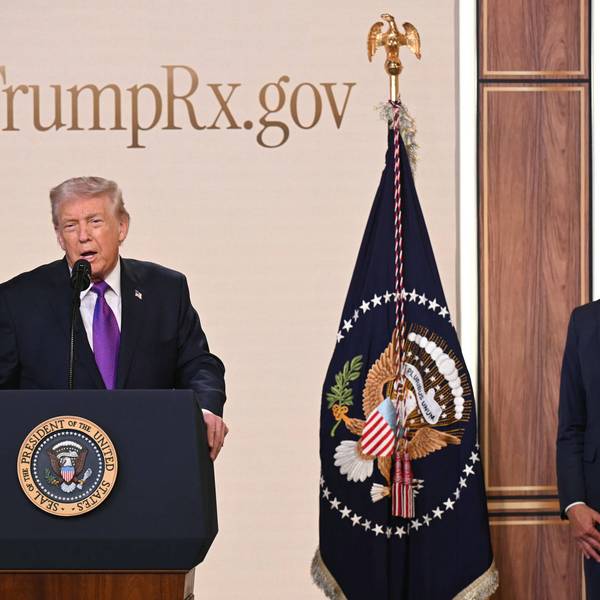Government watchdog Public Citizen is warning that the pharmaceutical industry is preparing an all-out blitz aimed at sabotaging government efforts to negotiate lower prices for prescription drugs.
In a report released on Wednesday, Public Citizen said it found that the major pharmaceutical companies this year have hired more than 500 lobbyists to push for the passage of three pieces of legislation that would undermine the provisions allowing the government to negotiate lower drug prices contained in the 2022 Inflation Reduction Act.
The first piece, called the ORPHAN Cures Act, was passed by Congress in July after being stuffed into the One Big Beautiful Bill Act. According to Public Citizen, the law will "delay and exempt some of the most profitable drugs—including cancer treatments—from negotiations, representing tens of billions in annual Medicare spending."
The other two pieces of legislation—the EPIC Act and the MINI Act—have not yet been passed, and Public Citizen says that they "would lengthen the already long delay period before small molecule drugs are eligible for negotiation—effectively excluding many medicines from negotiations entirely or shortening the period patients have access to lower negotiated prices to only one or two years."
Public Citizen estimates that there are currently 501 lobbyists who are pushing to pass these laws, while just 24 lobbyists are working to block their passage. In total, notes Public Citizen, this means opponents of the legislation are outnumbered by a ratio of more than 20-to-1.
Steve Knievel, Public Citizen's access to medicines advocate, called on elected representatives to "reject the demands of pharma lobbyists and instead work to make prescription drugs more affordable" for their constituents.
"Instead of handing drug corporations billions of dollars by helping them evade price negotiations," Knievel said, "Congress should pass legislation to empower Medicare to negotiate lower drug prices on all costly medicines and allow all patients to access lower, negotiated prices, even if they don’t have Medicare."




